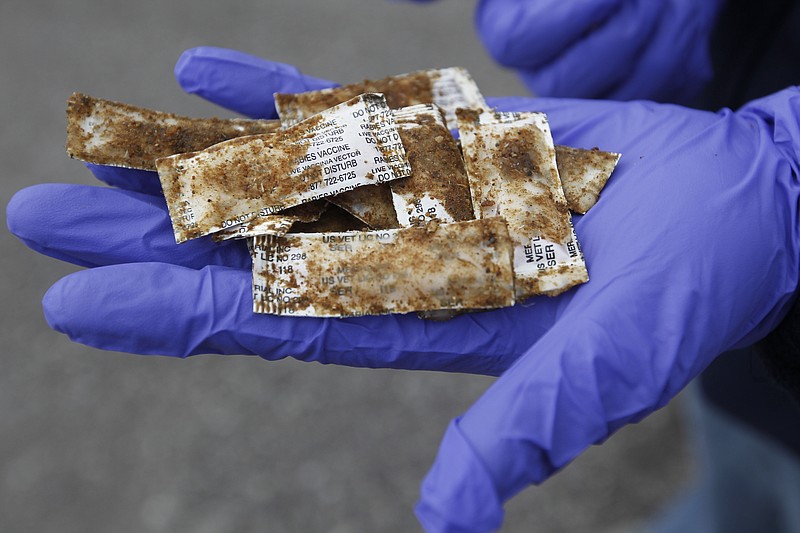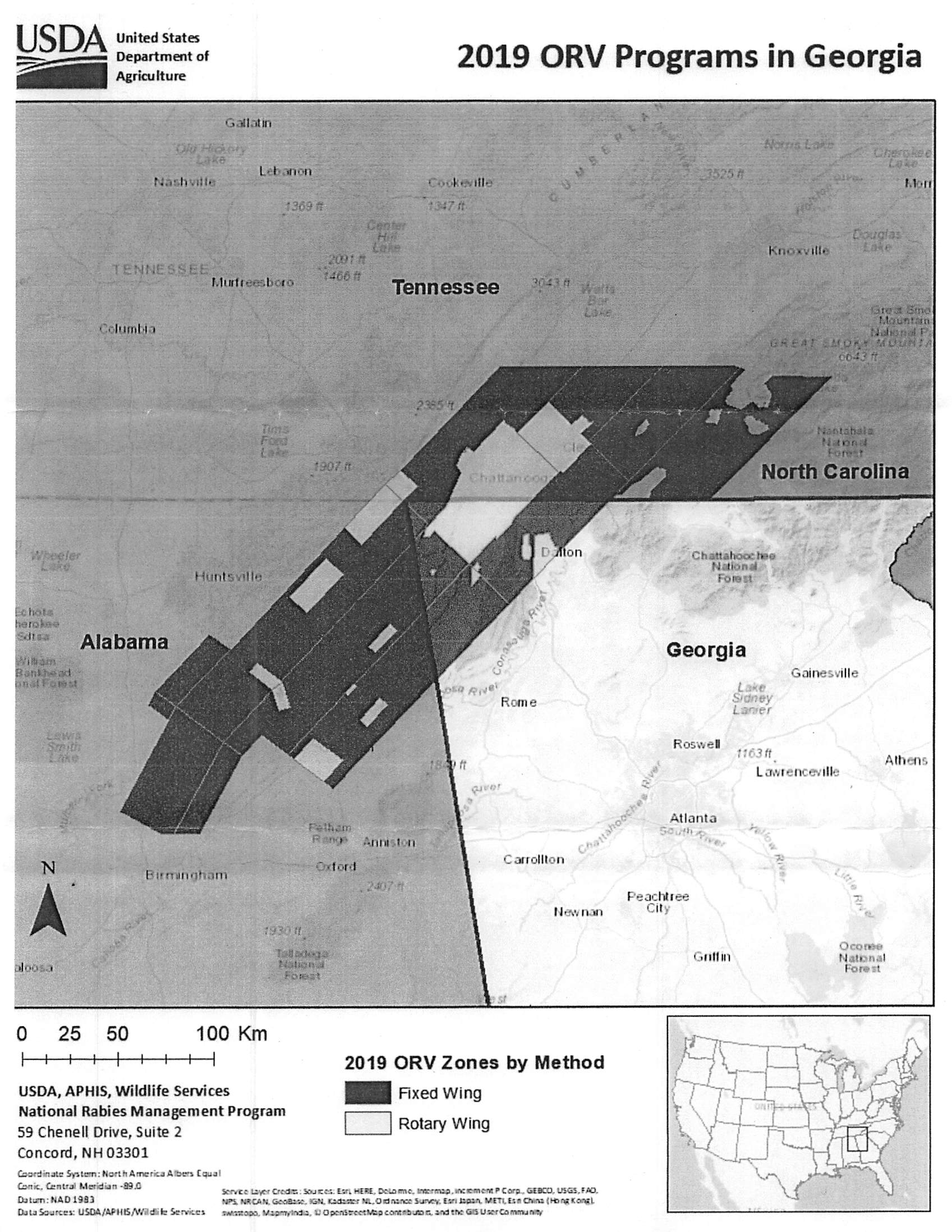Helicopters and airplanes will begin dropping baits next month intended to immunize wild raccoons against rabies and stop the spread of the disease across Northwest Georgia, according to a news release.
Mitch Talley, Whitfield County communications director, said about 88,000 bait packets will be dropped from aircraft in residential and urban areas beginning Oct. 3. Another 88,000 baits will be dropped in rural areas beginning Oct. 14, with completion of the operation expected the next week.
Target areas include all of Catoosa and Dade counties, large parts of Walker, Whitfield and Chattooga counties, and a small portion of Murray County, the release states. The effort will take place simultaneously in Tennessee and Alabama.
Officials said the vaccine used cannot cause rabies and is safe for more than 60 different species, including dogs and cats. Developing an effective barrier against rabies spread usually takes several years of bait distributions, monitoring and surveillance.
When an animal bites into a bait, the sachet inside ruptures, allowing the animal to swallow the vaccine. Animals that swallow enough of it develop immunity to rabies.
If you find a bait, you should leave it alone unless it's in your driveway or someplace a raccoon is unlikely to find it. In that case, you should wear a glove or other protective layer and move the bait to an area of thicker cover, authorities say.
Avoid touching the baits with bare hands or trying to take one from a pet.
The more animals develop immunity, the stronger the buffer preventing spread of rabies to domestic animals, humans and other wildlife.
For more information, call the U.S. Department of Agriculture's Wildlife Services toll-free number at 1-866-4-USDA-WS.

